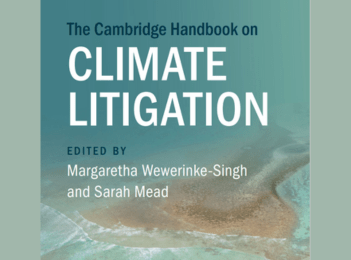Climate Litigation
The Appeal Decision in Milieudefensie/Royal Dutch Shell Confirms Climate Litigation’s Place in the Democratic Process
Christina Eckes, Professor of European law at the University of Amsterdam and the PI of the Strategic Climate Litigation Project, responds to the Shell ruling.
”The Dutch Court of Appeal explicitly and on principle rejected Shell’s (and Milieu & Mens’) argument that ‘decisions on reducing CO2 emissions belong to the domain of the legislator and not the domain of the civil court’ (7.52-7.53). The regulatory framework created by the national and EU legislature is neither exhaustive, nor does it exclude more far-reaching obligation of companies that require more than compliance with these rules. Human rights and the duty of care under tort, as well as legally binding and even non-legal norms, including the UN Guidelines on Business and Human Rights, create a net of general (background) norms that reflect fundamental, democratically legitimised choices on how to account for and balance interests and rights. These norms may require actions and omissions that are different from and may go further than what is set out in the specific regulatory framework. It is the role of the civil courts to interpret and apply all relevant norms. It is also the role of the civil courts to develop specific obligations from general norms where specific regulation fails to do so.
The appeal decision in Milieudefensie/Royal Dutch Shell confirms that companies cannot hide behind insufficient regulation to justify their inadequate climate mitigation objectives and actions. They may very well have further reaching mitigation obligations. The ruling is an invitation to the legislature to adopt a regulatory framework that is in line with the fundamental choices on how to balance interests and rights more generally and, as a result, oblige companies to reduce emissions in line with the temperature target of 1.5°C. The ruling also takes the firm position that the judiciary is the institution authorized, not only to apply specific rules, but also to enforce the fundamental choices reflected in general (i.e. not climate specific) norms and determine what they mean in relation to the climate.”






